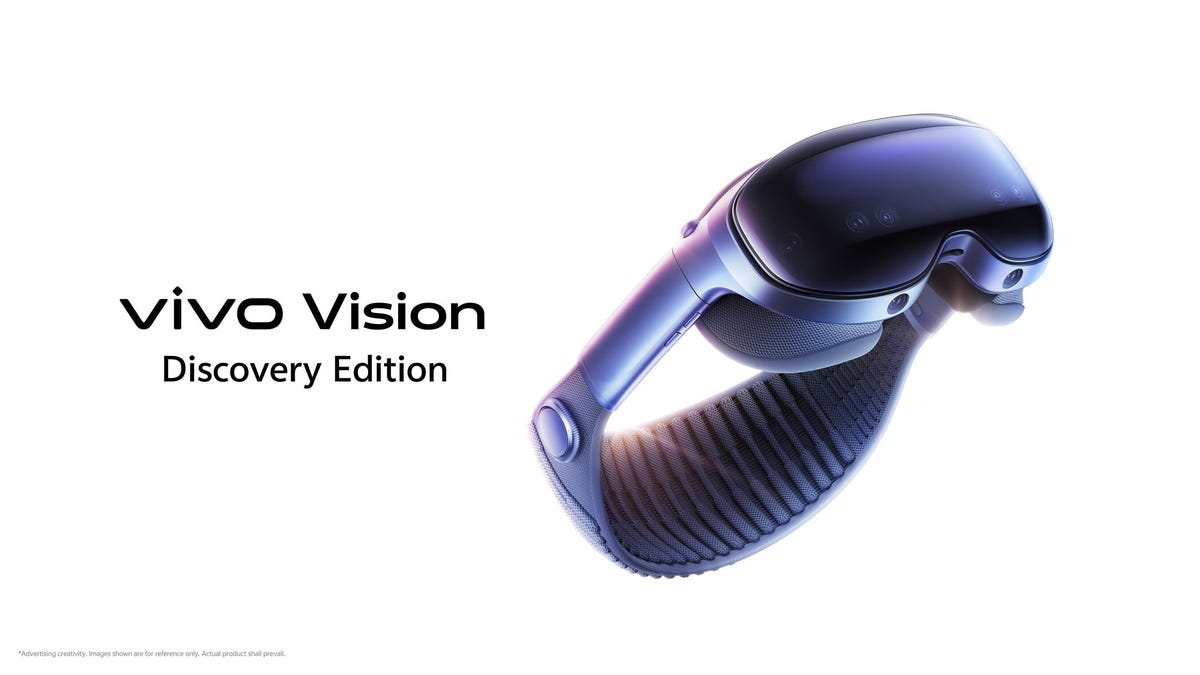Look-alikes of Apple products often pop up in China, and mixed-reality headsets have now joined the party. Chinese smartphone maker Vivo has introduced the Vivo Vision, a headset that mixes AR and VR and bears many similarities to the Apple Vision Pro.
The company announced the Vivo Vision Discovery Edition at its 30th anniversary celebration in Dongguan, China, saying it’s “the first MR product developed by a smartphone manufacturer in China, positioning Vivo as the first Chinese company to operate within both the smartphone and MR product sectors.”
The Vivo Vision, currently limited to an in-store experience in mainland China, has a curved glass visor, an aluminum external battery pack and downward-pointing cameras like the Vision Pro. But it also has some differences — an 180-degree panoramic field of view and a much lighter weight at 398 grams (versus the Vision Pro’s 650 grams).
CNET asked Vivo if it plans to sell the Vivo Vision to non-China markets, but the company did not immediately respond.
The Vivo Vision runs on OriginOS Vision, Vivo’s mixed-reality operating system. It supports 3D video recording, spatial photos and audio, and a 120-foot cinematic screen experience.
The starting cost in China will be relatively cheaper at $1,395 (converted to US dollars), compared to the Vision Pro at $3,500.
Even if the Vivo Vision were made available in the US, it might not matter much to Apple’s bottom line. The Vision Pro hasn’t been a big seller, in large part because of the steep price tag. Still, the headset market is expected to grow quickly over the next several years, and Apple is already working on new versions of the Vision Pro, including one that’s more affordable than the original.
Jon Rettinger, a tech influencer with more than 1.65 million YouTube subscribers, says he’s not overly enthusiastic about VR/AR just yet. “It’s heavy, invasive and without a must-have use case,” Rettinger told CNET. “If the technology can go from goggles to glasses, I think we’ll see a significant rise. But if the current form factors stay, it will always be niche.
The YouTuber loves that the technology exists, but still doesn’t use it. “The honeymoon wore off. Aside from some gaming and content viewing, it’s still cumbersome, and I tend to go back to my laptop,” he said.
Austin Evans, another tech influencer, says VR/AR headsets are still a somewhat flawed concept. Evans feels lukewarm about the price, lack of content and comfort level, though the Meta Quest takes a superior spot over the Apple Vision Pro. “The Quest is such a better value proposition, and even there it runs into issues with long-term retention and ultimately living in a drawer once the honeymoon period ends,” he said.
Read the full article here


